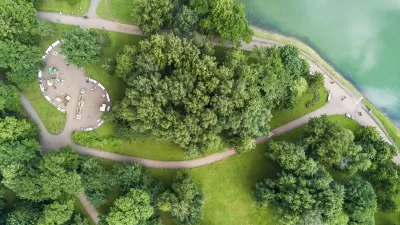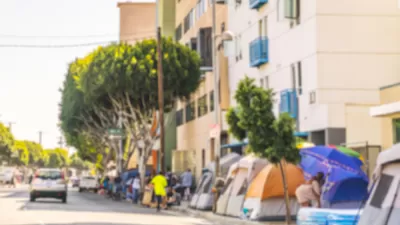A law passed unanimously by New York's City Council just four years ago requiring the Department of Parks and Recreation to document "how much money was flowing into different parks across the city" is being neglected, reveals Jacob Hodes.
While Los Angeles launches an initiative designed to help reduce the inequality of its parks, New York is moving in the opposite direction. At least that's the sense one gets from the failure of the city's parks department to comply with a law meant to address concerns that, "its parks system was splitting in two: in wealthy areas of the city,
gleaming, innovative green spaces, buttressed by private financing
sources; elsewhere, ailing parks with far fewer resources at their
disposal."
Local Law 28, which was passed unanimously by the City Council in 2008 and praised by the parks department, "required the Department of Parks and Recreation of New York City to
prepare an annual report that would detail, park by park, the
contributions of nonprofits and other private donors."
"Yet the most recent report from the parks department, on the 2010 fiscal
year, falls far short of the law's requirements," writes Hodes.
"'It doesn't reflect a real effort to comply with the law,' Alan J.
Gerson, a former councilman who sat on the parks committee in 2008,
said."
"'Whether it's for schools, or parks or any public place, the public
should know where the private money is coming from and what it's buying.
It's basic good government,' Mr. Gerson, a Manhattan Democrat, said."
"That's what we wanted to establish," he said.
FULL STORY: A Law to Expose City Parks’ Inequalities Is Neglected

Planetizen Federal Action Tracker
A weekly monitor of how Trump’s orders and actions are impacting planners and planning in America.

Maui's Vacation Rental Debate Turns Ugly
Verbal attacks, misinformation campaigns and fistfights plague a high-stakes debate to convert thousands of vacation rentals into long-term housing.

Restaurant Patios Were a Pandemic Win — Why Were They so Hard to Keep?
Social distancing requirements and changes in travel patterns prompted cities to pilot new uses for street and sidewalk space. Then it got complicated.

In California Battle of Housing vs. Environment, Housing Just Won
A new state law significantly limits the power of CEQA, an environmental review law that served as a powerful tool for blocking new development.

Boulder Eliminates Parking Minimums Citywide
Officials estimate the cost of building a single underground parking space at up to $100,000.

Orange County, Florida Adopts Largest US “Sprawl Repair” Code
The ‘Orange Code’ seeks to rectify decades of sprawl-inducing, car-oriented development.
Urban Design for Planners 1: Software Tools
This six-course series explores essential urban design concepts using open source software and equips planners with the tools they need to participate fully in the urban design process.
Planning for Universal Design
Learn the tools for implementing Universal Design in planning regulations.
Heyer Gruel & Associates PA
JM Goldson LLC
Custer County Colorado
City of Camden Redevelopment Agency
City of Astoria
Transportation Research & Education Center (TREC) at Portland State University
Jefferson Parish Government
Camden Redevelopment Agency
City of Claremont





























